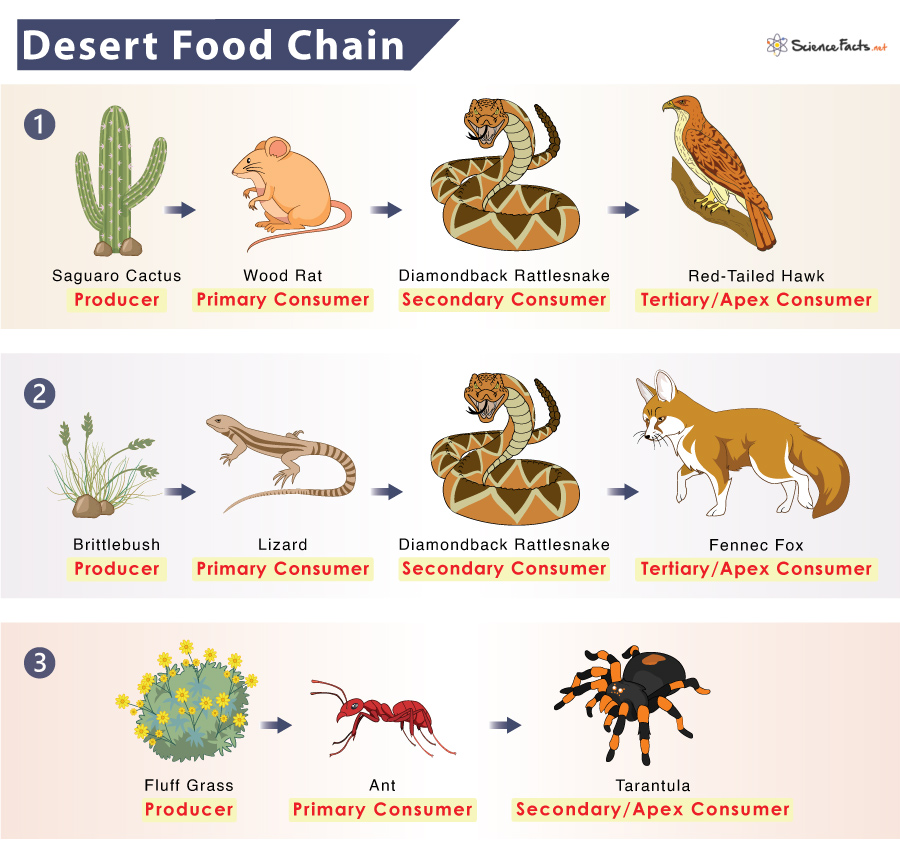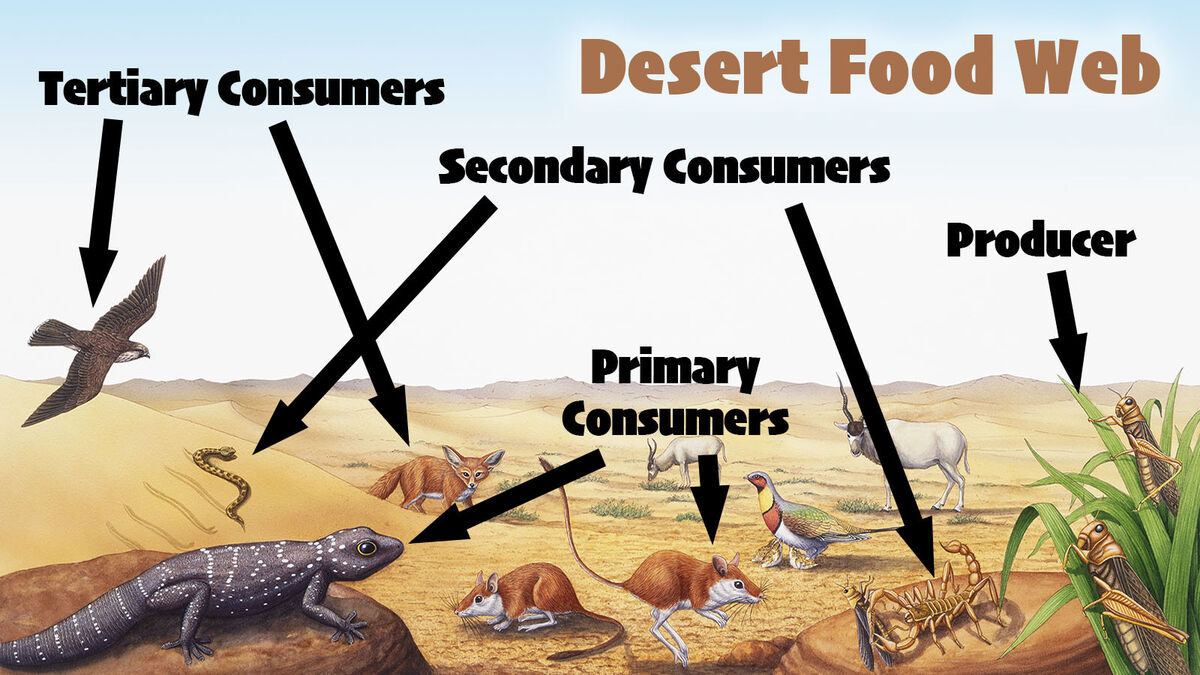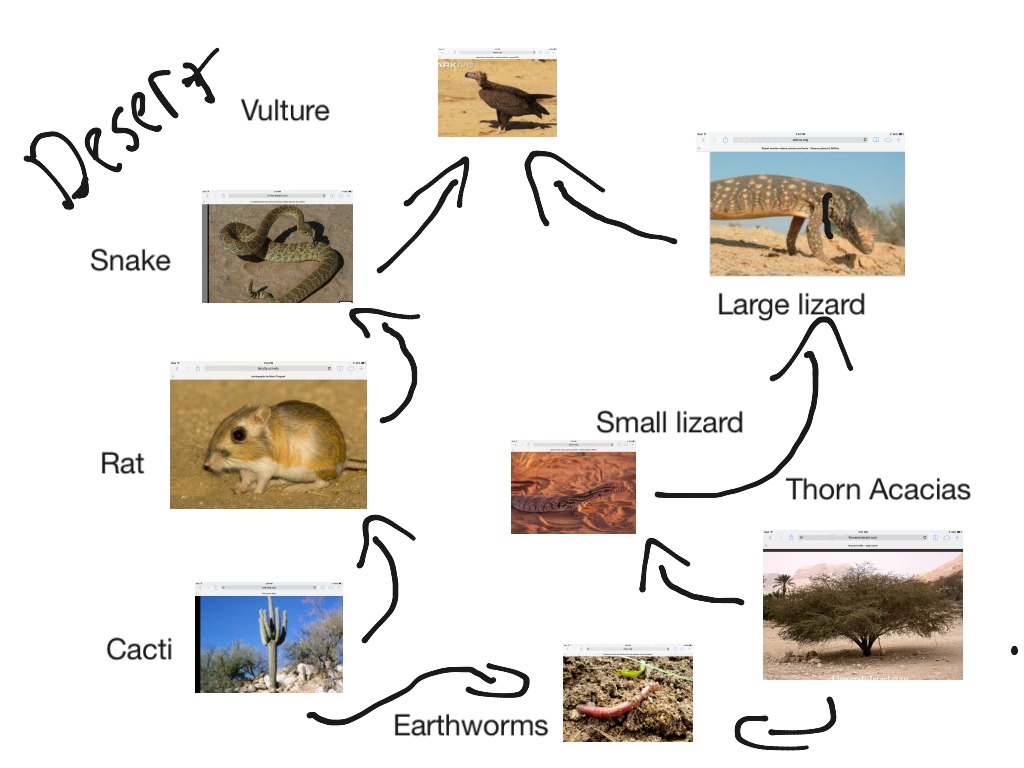Unveiling the intricacies of the desert meals net, we embark on a fascinating journey right into a realm the place life thrives amidst adversity. On this unforgiving ecosystem, a fragile steadiness unfolds, connecting organisms in a fancy tapestry of interdependence.
From resilient main producers to elusive carnivores, every participant on this arid drama has developed outstanding variations to navigate the challenges of their harsh atmosphere. Allow us to delve into the fascinating dynamics of the desert meals net, the place survival hinges on ingenuity and resilience.
Meals Internet Interactions: Desert Meals Internet

In a desert ecosystem, varied organisms work together and depend on one another for survival, forming a fancy meals net. The meals net consists of various trophic ranges, together with producers, herbivores, carnivores, and decomposers.
Meals Internet Illustration
The next desk offers a visible illustration of the desert meals net:
| Trophic Stage | Examples |
|---|---|
| Producers | Creosote bush, ocotillo, cactus |
| Herbivores | Jackrabbits, desert tortoises, bugs |
| Carnivores | Coyotes, bobcats, snakes |
| Decomposers | Micro organism, fungi |
Trophic Relationships
Inside every trophic degree, particular trophic relationships exist:
- Producers (crops) use daylight, water, and vitamins to create their very own meals by means of photosynthesis.
- Herbivores (main shoppers) feed on producers.
- Carnivores (secondary and tertiary shoppers) feed on herbivores or different carnivores.
- Decomposers break down useless organisms and natural matter, returning vitamins to the ecosystem.
Diversifications and Interdependencies

Within the unforgiving desert atmosphere, organisms have developed outstanding variations to make sure their survival. These variations contribute to the steadiness and resilience of the desert ecosystem.
One key adaptation is water conservation. Desert organisms have developed environment friendly methods to reduce water loss, reminiscent of thick, waxy pores and skin to scale back evaporation and specialised kidneys to preserve water in urine. For instance, the kangaroo rat can survive with out ingesting water for prolonged durations by acquiring moisture from its meals and metabolic processes.
Camouflage, Desert meals net
Camouflage is one other essential adaptation within the desert. Many desert organisms mix seamlessly with their environment to keep away from predators or entice prey. As an example, the desert horned lizard has a flattened physique and spiky scales that present wonderful camouflage amongst rocks and vegetation.
Nocturnal Habits
To deal with excessive daytime temperatures, some desert organisms have adopted nocturnal conduct. They’re lively throughout the cooler night time hours, avoiding the tough noon solar. For instance, the desert fox emerges at night time to hunt for meals and shelter from the warmth.
Important Questionnaire
What are the important thing variations of desert organisms?
Desert organisms have developed varied variations to outlive excessive temperatures, water shortage, and restricted meals assets. These embody water storage mechanisms, drought tolerance, camouflage, and nocturnal conduct.
How do herbivores contribute to the desert meals net?
Herbivores eat crops, changing plant matter into power that may be handed up the meals chain. They play an important function in controlling plant populations and guaranteeing the supply of assets for different organisms.
What’s the function of decomposers within the desert ecosystem?
Decomposers, reminiscent of micro organism and fungi, break down useless organisms and natural matter, releasing vitamins again into the soil. This course of is crucial for nutrient biking and the general well being of the ecosystem.




